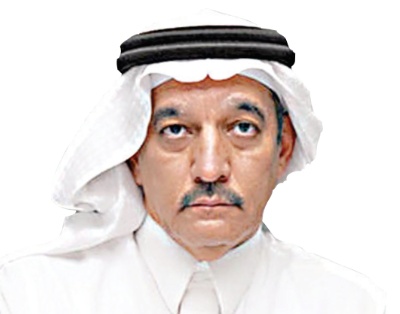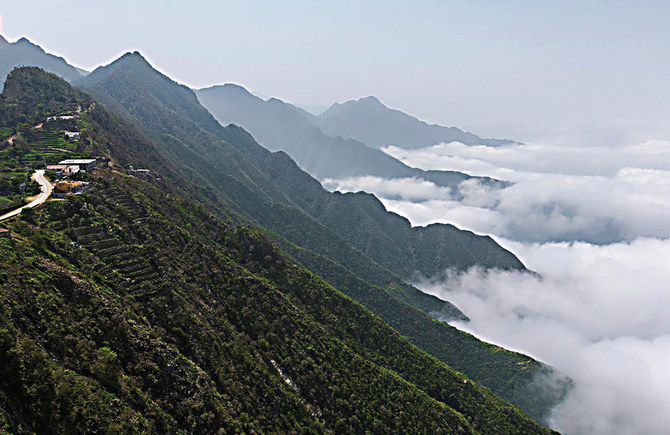JEDDAH: In the heart of Saudi Arabia, amidst the towering skylines of Riyadh, Jeddah and Dammam that have long symbolized the nation’s economic strength, a new narrative is taking shape. It is a story of decentralized development, where attention is shifting away from the bright lights of the cities to the lesser-explored corners of the Kingdom.
In recent years, there has been a noticeable pull towards the untapped potential of smaller towns and regional municipalities, captivating the interest of investors, entrepreneurs, and policymakers alike.
This shift marks a departure from the traditional belief that growth is solely concentrated in urban centers, signaling a fresh era of exploration and diversification.
As Saudi Arabia steers towards a more resilient and inclusive economy, the growing fascination with these areas, which had not received much attention before Saudi Vision 2030 was announced, underscores the evolving priorities and ambitions guiding the Kingdom’s economic trajectory.
Talat Hafiz, a renowned economist, told Arab News that the focus on developing small towns, helps to limit internal movement of people to urban and large cities to seek job opportunities and look for better living.
“It also supports the government efforts in reaching comprehensive sustainable economic development,” he said.

Economist Talat Hafiz
Commenting on what sectors or industries within these smaller towns are experiencing the most significant growth, Hafiz said that the case differs from one place to another as each city has its own economic characteristics and competitive advantages.
“In some towns, tourism is the most competitive advantage while the industrial sector is more competitive and advantageous in the others,” he pointed out.
The economist noted that Saudi Vision 2030 has fostered the capabilities of local planning decentralization, which would allow municipalities to undertake tasks that boost the city in collaboration with the private sector.
He added that that, as a result, several small towns and cities have been upgraded to the level of urban cities which in turn has improved the infrastructure and public services.
“Boosting the capability of small towns is coupled with the development of universities and medical and educational facilities, which in turn has attracted investment, created job opportunities and limited internal immigration,” Hafiz said.
Nasser Al-Qaraawi, another economist, said that Saudi Vision 2030 took into consideration the need to alleviate congestion within major cities due to the excessive focus on them.
He added that the excessive population density in these major cities, compared to other cities, has made life difficult, noting that ineffective urban planning strategies contributed to the overcrowding, especially by young people seeking job opportunities and education.
“This was followed by the aftermath of the stock market crisis in 2006,” he told Arab News.
Al-Qaraawi added that when the 2030 plan was announced, developing areas surrounding the larger cities and less developed regions were given the opportunity for growth.
However, he further said, these regions unfortunately vary in success as some municipalities are unable to perform to their full potential due to bureaucratic hurdles.
Al-Qaraawi recommended restructuring the municipalities, as development indicators highlight the pressing need to catch up and enact meaningful change within these local governments to fulfill the state’s goals and meet the citizens’ aspirations.
Investment opportunities in smaller municipalities include the following:
Diverse investment opportunities in EP municipality
Eastern Province’s urban administration has unveiled 362 diverse investment opportunities, spanning cities and governorates.
Covering over 20,000 assets across 116 million sq. m., the initiative includes sectors like infrastructure, transportation and tourism. Investors were urged to capitalize on incentives like contractual extensions and exemption periods.
These investment portfolios serve as a database for significant investment growth in the region, according to the Saudi Press Agency.
Jazan as key investment hub, coffee capital
With its significant port and refinery, Jazan has experienced a surge in investment, driven by rapid infrastructure expansion. The economic zone aims to attract SR11 billion ($2.93 billion) in foreign investments by 2040, leveraging its untapped mining reserves. The region is poised to become a hub for the mining sector, projected to be Saudi Arabia's third pillar of industry.
Additionally, Jazan’s integrated economic center is expected to generate 17,000 direct jobs by 2040 and contribute significantly to the gross domestic product.
During the Cityscape Global Exhibition, held in Riyadh from Sept. 12-13 last year, Jazan Municipality announced 5,000 investment opportunities to be launched from 2023 to 2027, with a total value exceeding SR5 billion.
Among the most prominent developmental and investment projects presented were the Jazan Gateway, Water Park City, Al-Wadi Park, and Jazan Private University as well as Jazan Private Medical City.
On the other hand, the region’s renowned coffee industry adds to its cultural heritage, with plans for the International Saudi Coffee Exhibition to support local farming initiatives and transform Jazan into a global trade center.
The Sustainable Rural Agricultural Development Program has provided more than SR155 million in support to the coffee sector, benefiting over 3,000 farmers. The Ministry of Environment, Water, and Agriculture, in collaboration with the private sector, is implementing various projects, including opportunities for coffee cultivation.
Northern Borders region attracts more investors
The Kingdom seeks to establish a logistics zone in Arar, where investors will be granted land plots, according to Minister of Commerce Majid Al-Qasabi, who made the statement during his speech at the Northern Borders Investment Forum, held in November 2023.
According to a release issued by the Arar Municipality in January 2024, Saudi Arabia’s Northern Borders region saw a 58.3 percent growth in factory numbers in the third quarter of 2023, with total investment hitting SR74.3 billion.
The statement added that the area, driven by a strategic regional development office, attracted increased corporate spending for business setups during that period, rising from SR73.9 billion in the third quarter of 2023.
In February 2023, Crown Prince Mohammed bin Salman announced the establishment of the Strategic Office for the Development of the Northern Borders region to enhance the quality of life in the area.
Asir region to exploit huge tourism potential
In September 2021, the crown prince unveiled a SR50 billion tourism strategy for Asir, aiming to attract over 10 million visitors by 2030. Dubbed “The Arabian Highland,” the plan entails comprehensive development, focusing on cultural and natural assets to establish Asir as a year-round destination.
Projects include enhancing tourist attractions on Asir’s mountains, leveraging the region’s rich culture and heritage for social and economic growth. The strategy taps into Asir’s tourism potential, emphasizing geographical diversity and modernizing infrastructure.
In October 2023, the crown prince announced a master plan for the new Abha International Airport, increasing capacity to accommodate 13 million passengers annually and enhancing air connectivity to 250 destinations, aligning with Saudi Vision 2030.
In the same month, he launched Ardara Co. to develop the Abha Valley project, contributing to Saudi Arabia’s National Tourism Strategy to position the Kingdom as a global tourism hub by 2030. These initiatives create opportunities across sectors like hospitality, agriculture, and entertainment, bolstering private sector growth.
Taif attracts investments of over SR11 billion
Investment agreements exceeding SR11 billion were announced on the first day of the Taif Investment Forum, held in November 2023, according to the Saudi Press Agency.
Under the theme “Invest in Taif,” the three-day forum saw active participation from industry leaders in the UK, China and South Korea. Several high-ranking officials from Saudi government agencies and the private sector also attended.
Sultan Al-Saadoun, the general supervisor of the forum, emphasized that the investment agreements are the result of partnerships between the public and private sectors in over 27 projects.
He added that these projects will create more than 10,000 job opportunities for the people of Taif of both genders.
Ghazi Al-Quthami, president of the city’s Chamber of Commerce and Industry, underscored Taif’s potential for investments in various sectors, such as tourism, agriculture, industry, and healthcare.
He added that the chamber is actively collaborating with relevant entities to expand investment opportunities in the city.
Al-Jouf provides 700 investment opportunities in 2023
The municipality of the northern region of Al-Jouf, which is home to the Sakaka solar power plant, announced in February 2024 it had introduced more than 700 opportunities in the municipal sector of the region during 2023 through the ‘Furas’ municipal investment portal.
The region’s mayor, Atef Al-Shara’an, emphasized the municipality’s commitment to presenting the available investment opportunities to investors in accordance with the plans of the Ministry of Municipal and Rural Affairs and Housing, and the goals of Vision 2030 of the Kingdom, according to SPA.
Al-Shara’an added that the investment opportunities presented during the past year varied between major, medium, small, and temporary opportunities in all commercial, recreational and tourist as well as sports, service, seasonal events, and other fields.
Recently, the region’s mayoralty announced the bid opening for eight commercial and residential investment opportunities for national investors and institutions at Al-Esawia sub-municipality. The bid evaluation meeting is scheduled for April 15.
Yanbu emerges as entertainment hub
A contract worth SR1.1 billion has been granted to build a new entertainment hub in Yanbu to boost economic diversification in Saudi Arabia.
The contract was awarded by Public Investment Fund subsidiary Saudi Entertainment Ventures, also known as SEVEN, to a joint venture between Al Bawani Co. and UCC Saudi, according to a press release.
The statement emphasized that the entertainment hub will be located along the seafront promenade on Al Nawras Island, aiming to greatly enhance the city’s local entertainment scene.
In a press statement, issued in September 2023, SEVEN said that the company is investing more than SR50 billion to build 21 entertainment destinations across Saudi Arabia.
The company has earlier announced that it had already begun construction works on its entertainment destinations in the Al Hamra district of Riyadh and Tabuk.
Buraidah Municipality unveils 28 investments opportunities
The Qassim region, home to Buraidah city, stands as a province abundant in natural and agricultural resources. Notably, it hosts the Middle East’s only bauxite mine, yielding approximately 5 million tonnes of ore and contributing to the Kingdom’s aluminum production of 1.8 million tonnes in 2020.
The Buraidah Municipality has recently unveiled 28 investment opportunities for the first quarter of 2024.
These opportunities encompass a wide range of sectors, from commercial, health, and tourism activities to transportation, construction, and entertainment projects. Additionally, investors can explore prospects in agriculture, education, and other sectors, promising diverse avenues for growth and development.
It is apparent that, by tapping into regional potential and spreading development initiatives, the Kingdom aims to reduce reliance on oil revenues, stimulate job creation, and foster widespread prosperity, in line with the goals of Saudi Vision 2030.





























